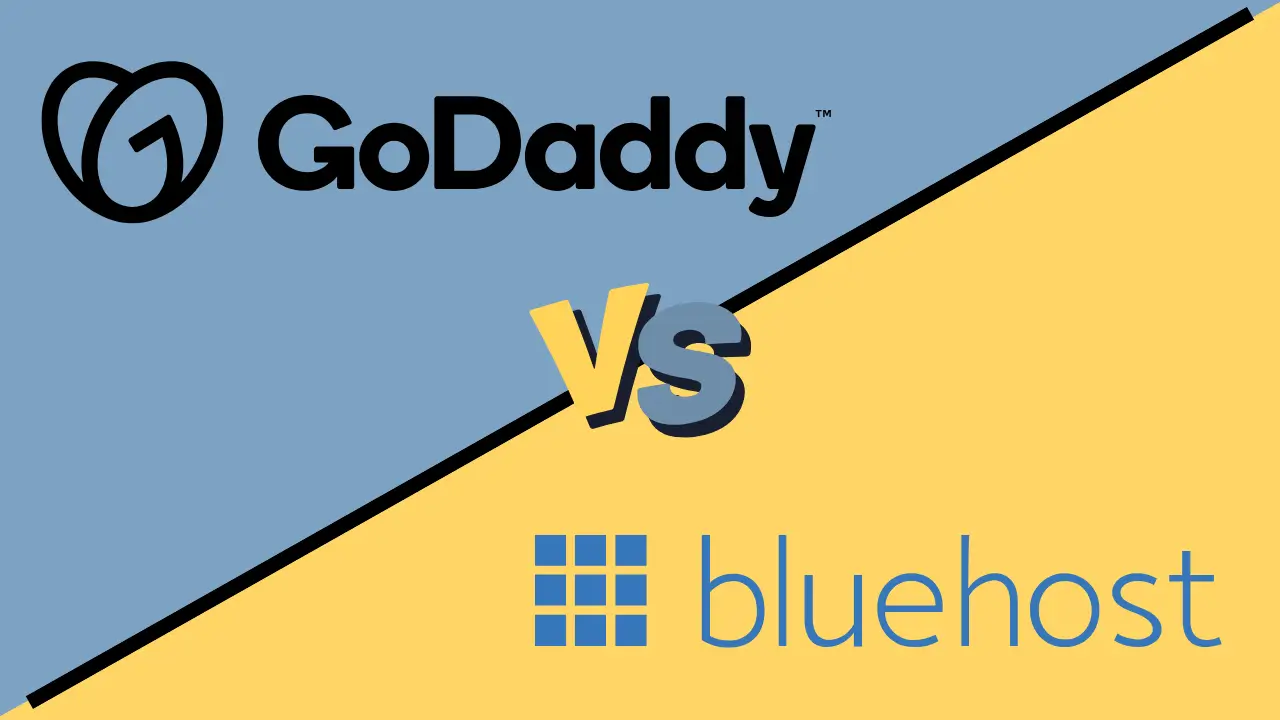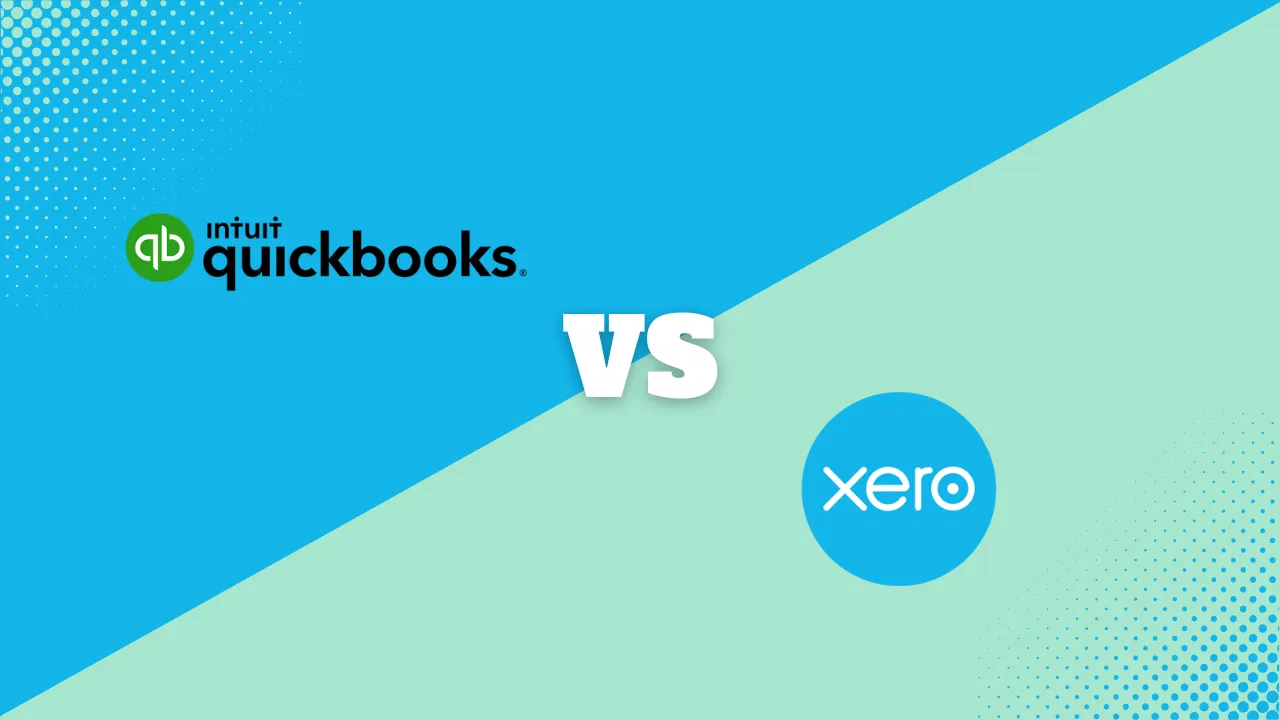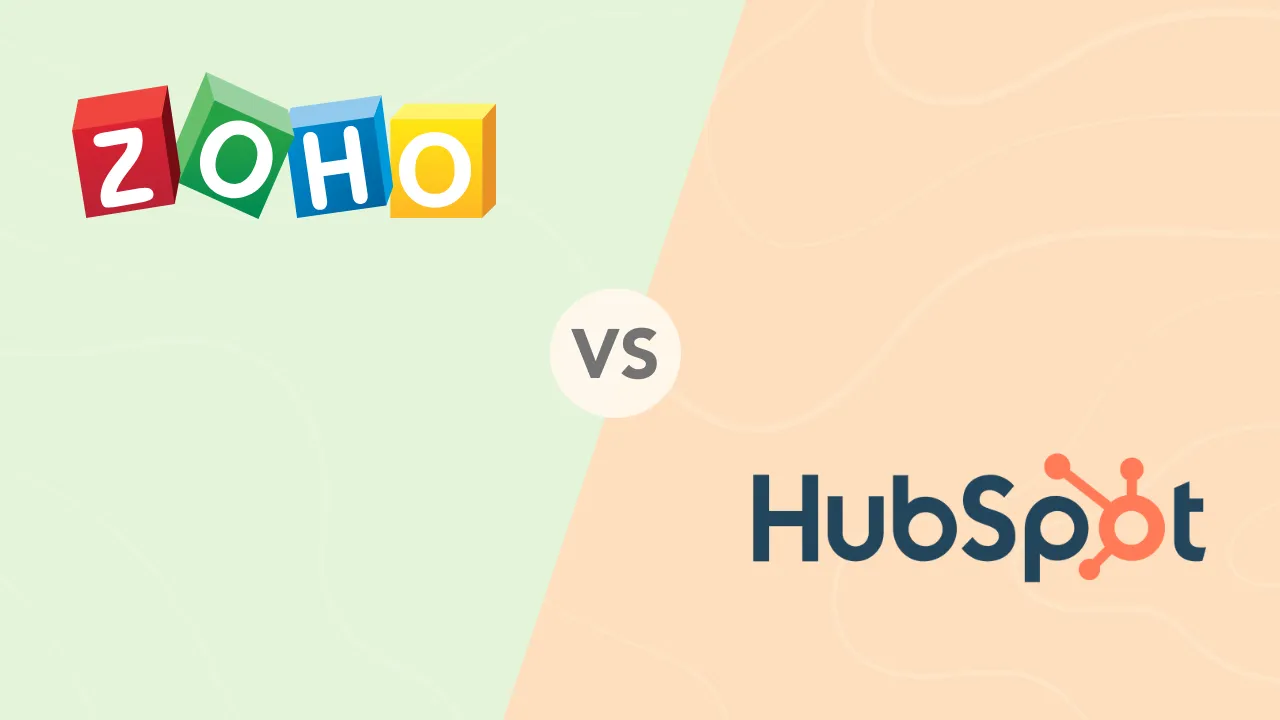Shared Hosting vs. VPS Hosting: Which One Fits Your Business?
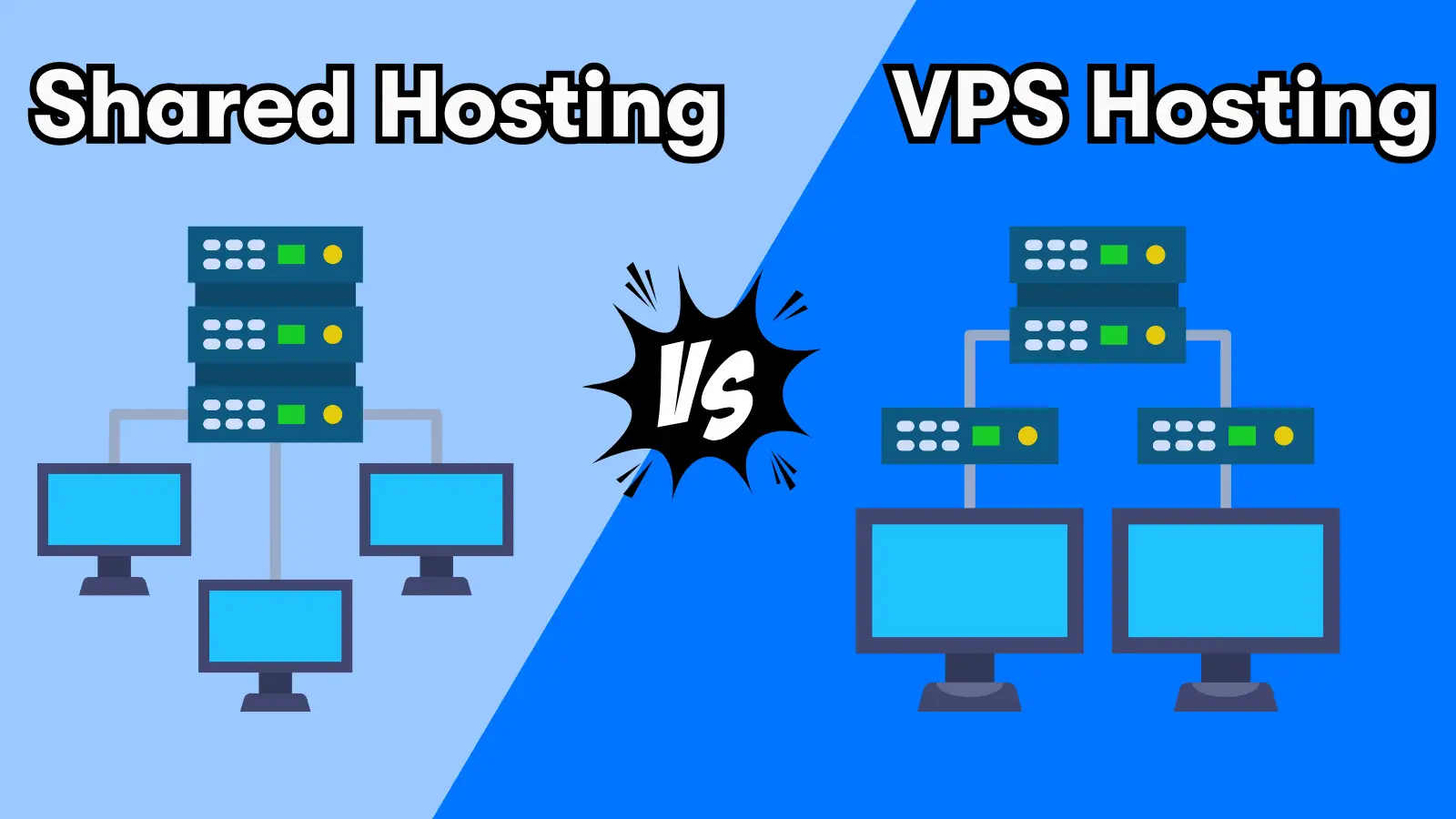
When it comes to selecting web hosting, choosing between shared hosting and VPS (Virtual Private Server) hosting can be challenging. Both options have specific benefits and limitations, but the right choice ultimately depends on your business’s needs and goals. Understanding the unique characteristics of each hosting type is essential to ensure your website performs optimally, stays secure, and has room to grow.
In this article, we’ll discuss shared hosting and VPS hosting, compare their features, and help you determine which one best suits your business.
What is Shared Hosting?
Shared hosting is one of the most popular and affordable hosting options, especially for small businesses and beginners. In shared hosting, multiple websites are hosted on the same server, sharing resources like CPU, RAM, and storage. This setup reduces the cost for each user, making it an attractive choice for personal blogs, small businesses, and websites with moderate traffic levels.
Advantages of Shared Hosting
-
Affordability: Shared hosting is typically the most budget-friendly hosting option available. With shared resources, the cost is significantly lower compared to other hosting types, which is ideal for businesses with limited budgets.
-
Ease of Use: Shared hosting providers often offer a user-friendly control panel, such as cPanel, making it easy to manage website files, emails, and settings without advanced technical knowledge.
-
Maintenance and Updates: The hosting provider handles server maintenance, updates, and security, reducing the workload for the website owner.
Drawbacks of Shared Hosting
-
Resource Limitations: Since multiple websites share the same server, each site has limited resource access. High traffic on one website can slow down others on the same server.
-
Limited Performance: Shared hosting may struggle to support websites with high traffic or complex applications, leading to slower load times.
-
Less Control and Flexibility: Shared hosting offers fewer customization options for server settings, which can limit control over specific configurations or software installations.
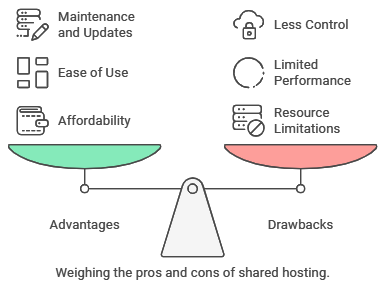
What is VPS Hosting?
VPS hosting stands for Virtual Private Server hosting, which provides more dedicated resources to individual users compared to shared hosting. In VPS hosting, a physical server is divided into several virtual servers, each operating independently. This configuration allows users to have dedicated CPU, RAM, and storage portions, offering better performance and flexibility.
Advantages of VPS Hosting
-
Dedicated Resources: With VPS hosting, each user has dedicated resources, which translates to more consistent performance, even during traffic spikes.
-
Scalability: VPS hosting allows users to upgrade resources as their business grows, ensuring that their hosting environment can scale with increased traffic and demands.
-
Better Security: Since each VPS operates independently, it is more secure than shared hosting. Other websites on the same server won’t impact your site’s performance or security.
-
Greater Control: VPS users have root access to their virtual server, which allows them to configure the server environment, install specific applications, and customize settings according to their needs.
Drawbacks of VPS Hosting
-
Higher Cost: VPS hosting is generally more expensive than shared hosting, as users pay for dedicated resources and added flexibility.
-
Technical Knowledge Required: Managing a VPS server often requires a basic understanding of server administration, as more control means more responsibility.
-
Maintenance Responsibility: Depending on the hosting provider, VPS users may need to handle some aspects of server maintenance and updates, unless they opt for a managed VPS plan.
Related Articles
Key Differences Between Shared Hosting and VPS Hosting
Now that we understand what shared and VPS hosting are, let’s explore the major differences between them. This breakdown will clarify how each hosting option affects cost, performance, security, and scalability, helping you choose the right fit for your business.
-
Cost and Affordability
- Shared Hosting: Generally the most budget-friendly option. It’s ideal for startups, personal blogs, or businesses with limited budgets since server resources are shared among multiple users.
- VPS Hosting: More costly due to dedicated resources. VPS hosting is better suited for businesses that can invest more in performance and security as they grow.
-
Performance and Reliability
- Shared Hosting: Since resources are shared, a surge in traffic on one site may affect others, leading to slower load times or occasional downtime.
- VPS Hosting: Offers dedicated resources, which results in more stable and reliable performance. Even during peak traffic times, VPS ensures consistent speed and uptime.
-
Resource Allocation
- Shared Hosting: Limited CPU, RAM, and storage are shared, which restricts each site’s access to server power.
- VPS Hosting: Each VPS user has dedicated portions of resources, enabling websites to operate independently without interference from other sites on the same server.
-
Control and Customization
- Shared Hosting: Limited control over server settings, making it suitable for beginners or users needing a straightforward setup.
- VPS Hosting: Grants root access, allowing users to customize their server environment, install applications, and make configuration changes to meet specific requirements.
-
Security
- Shared Hosting: Basic security measures are implemented, but the shared environment poses potential risks if one website on the server faces security issues.
- VPS Hosting: Since each server environment is isolated, VPS hosting provides stronger security, making it a safer choice for handling sensitive data or running eCommerce stores.
-
Scalability
- Shared Hosting: Limited scalability; expanding resources is challenging without moving to a higher hosting tier.
- VPS Hosting: Highly scalable, allowing users to upgrade resources like CPU, RAM, and storage as traffic and business needs grow.
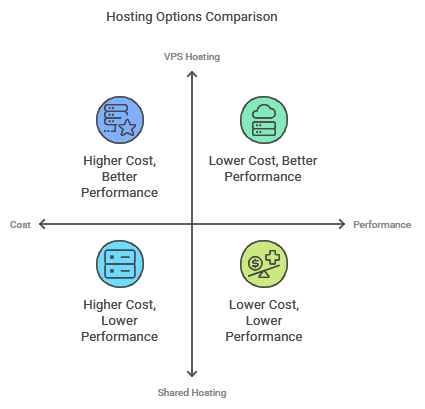
Top Hosting Service Providers
 Automatic WordPress installation
Automatic WordPress installation  Free SSL Certificate
Free SSL Certificate  Winners of the "Exceptional Customer Service" Stevie® Award
Winners of the "Exceptional Customer Service" Stevie® Award  Superior performance & load times
Superior performance & load times  99.9% uptime guarantee
99.9% uptime guarantee  Free SSL certificate
Free SSL certificate  99.99% uptime guarantee
99.99% uptime guarantee  Free SSL certificate
Free SSL certificate  Guaranteed 99.9% uptime
Guaranteed 99.9% uptime  Live technical support
Live technical support Comparison Table: Shared Hosting vs. VPS Hosting
| Aspect | Shared Hosting | VPS Hosting |
| Cost | Budget-friendly, ideal for small sites | Higher cost, suited for scaling businesses |
| Performance | May slow with high traffic or shared resources | Consistent performance with dedicated resources |
| Resource Allocation | Limited, shared among multiple users | Dedicated resources per user |
| Control | Limited customization | Root access for complete control |
| Security | Basic, with shared risk | Isolated environment with enhanced security |
| Scalability | Minimal scalability | High scalability as business grows |
Which Type is Best for Your Business?
Choosing between shared hosting and VPS hosting depends largely on the size, goals, and growth trajectory of your business. Below are some guidelines to help decide which hosting solution may be the best fit:
-
Small Businesses & Personal Sites: For personal blogs, portfolio sites, or small business websites with modest traffic, shared hosting provides sufficient resources and is cost-effective.
-
Growing Websites & eCommerce Stores: VPS hosting is an ideal choice if you expect your website to handle high traffic, require advanced security, or need more flexibility for customization. It also provides scalability, making it easier to upgrade as your website expands.
Conclusion
Understanding the differences between shared and VPS hosting is essential for selecting the right hosting for your business. Shared hosting offers simplicity and affordability, making it ideal for smaller websites. VPS hosting, on the other hand, provides dedicated resources, enhanced performance, and greater security, fitting businesses with higher demands. Ultimately, choose a plan that aligns with your budget, technical requirements, and growth goals to keep your website performing optimally.
